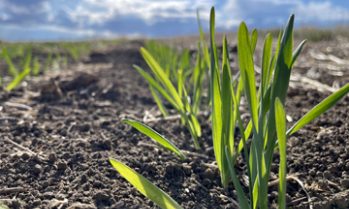Controlling Weeds
Weeds will normally cause some yield-loss in organic crops and this is accounted for in long-term average organic yields and organic premium rates.
If weed populations reduce your yield enough to put the crop in a claim situation, SCIC will evaluate your organic weed management practices. If weed management practices are considered inadequate, penalties may be applied.
To evaluate whether weed management is adequate, SCIC will evaluate the following:
- Crop rotation
- Frequency of green manure plow-down and summerfallow
- Use of perennial crops in rotations
- Use of diverse crop types and seeding dates (e.g. fall cereals, spring cereals, oilseeds, pulses, forages, green manures, cover crops)
- Rotation of highly competitive crops with less competitive crops
- Use of competitive crop cultivars (e.g. taller varieties as opposed to semi-dwarf varieties)
- Use of increased seeding rates, narrow plant row spacing and wider seed spread
- Appropriate use of delayed or early seeding, depending on primary weed pressures
- Proper seedbed weed control
- Use of tillage (pre-seeding, pre-emergent, post‑emergent, post-harvest, inter-row)
- Proper prevention of weed seed set in plow-down and fallow years
- Other longer-term weed control such as mowing perennial weeds, clipping weeds above or within the crop canopy and chaff collection
SCIC recognizes that not all of these techniques are appropriate for every farm, crop or year.









